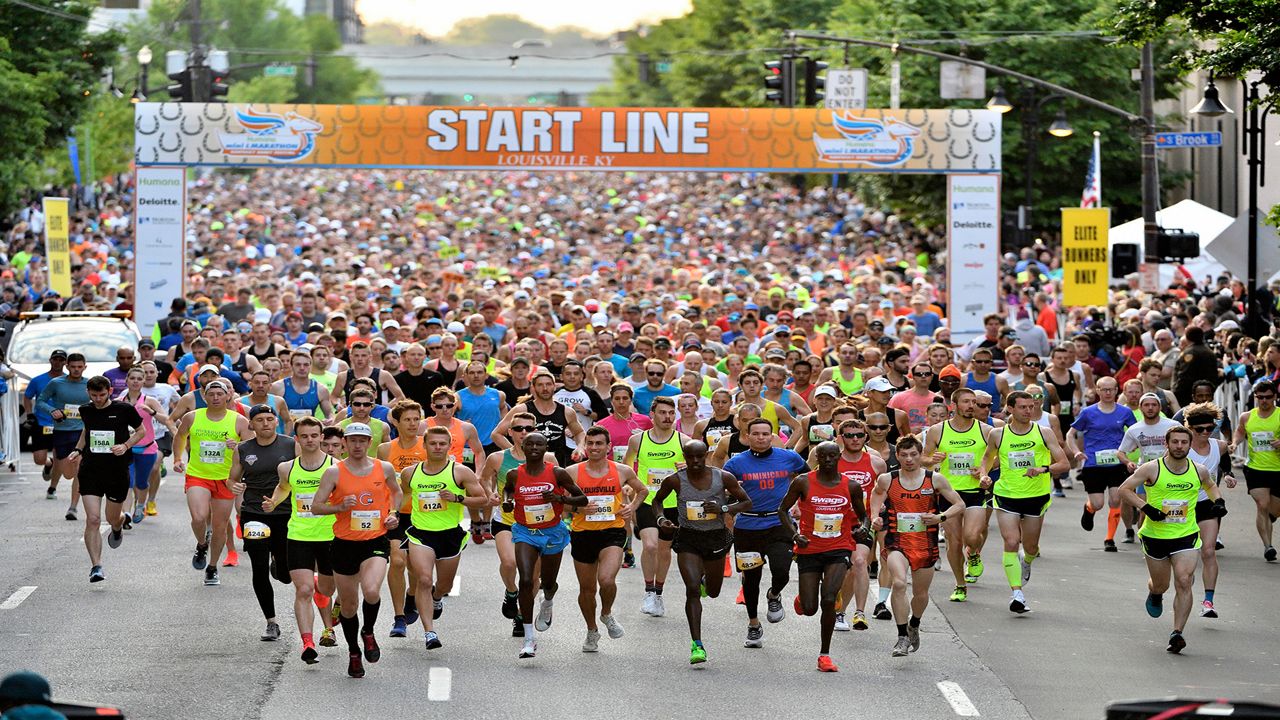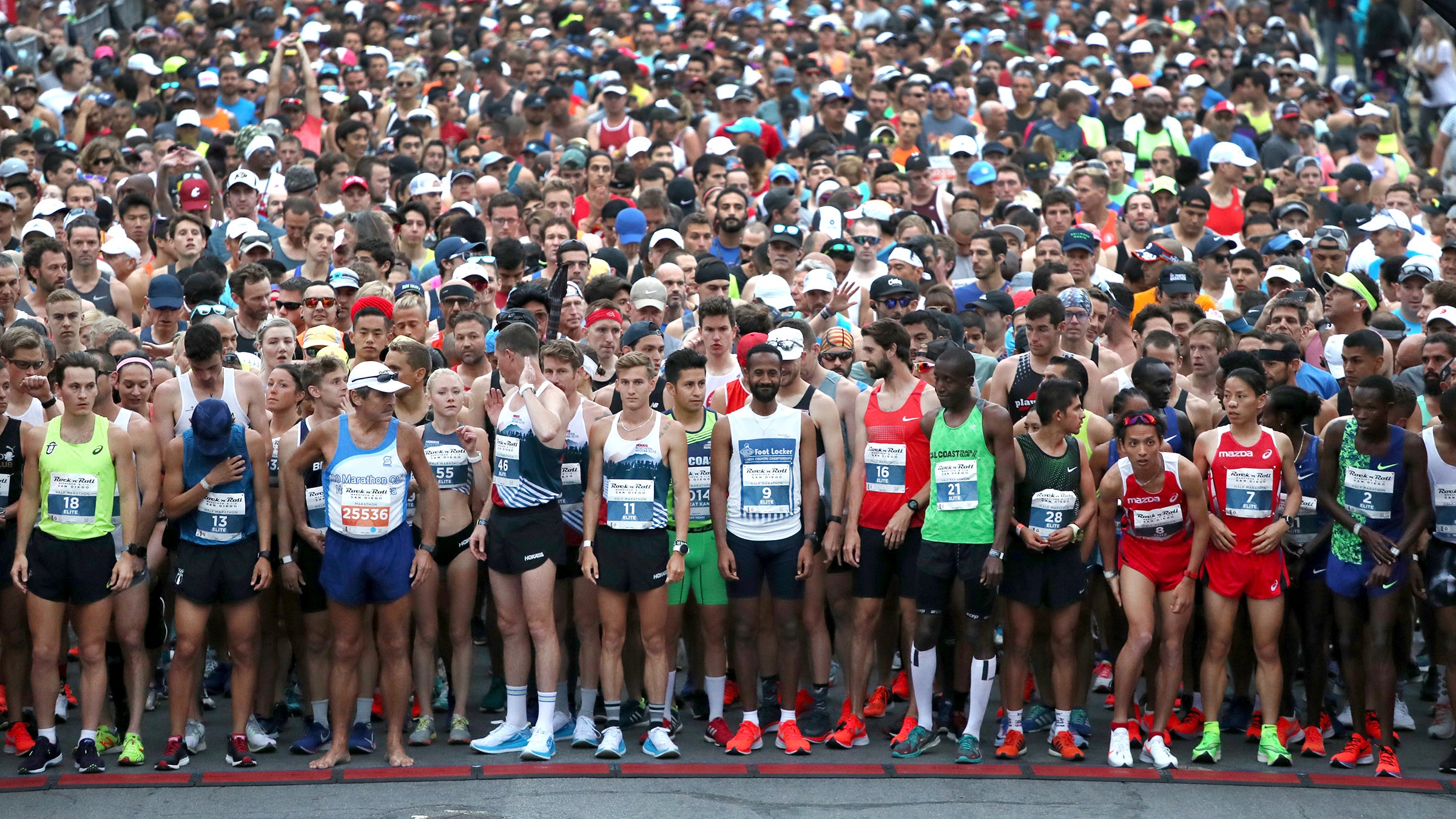How to Start a Marathon
To start a marathon, register for an event and choose a training plan that fits your ability. Begin your training gradually, increasing mileage and intensity over time to build endurance and prevent injuries.
Training consistency is key to prepare your body for the demands of a marathon. Focus on proper nutrition, hydration, and recovery to support your training and optimize performance on race day. Stay motivated and set realistic goals to help you stay on track and enjoy the journey to completing a marathon.
Remember to listen to your body and adjust your training as needed to ensure a successful race day experience.

Credit: spectrumnews1.com
Choosing The Right Marathon
Choosing the right marathon is essential for a successful and enjoyable running experience. It is important to consider various factors before selecting a marathon that aligns with your running goals, capabilities, and preferences. Here are the key aspects to focus on when choosing the right marathon:
Researching Different Marathons
Conduct thorough research on various marathons to find one that best suits your preferences. Look into factors such as location, course terrain, climate, and the overall atmosphere of the event. Consider the reputation of the marathon, its organization, and the feedback from previous participants.
Determining The Difficulty Level
Assess the difficulty level of the marathon by considering factors such as altitude, elevation changes, weather conditions, and the overall course layout. Determine if the marathon aligns with your current fitness level and running experience to ensure a challenging yet achievable race.
Creating A Training Plan
When embarking on the journey of marathon training, creating a structured plan is essential to ensure progress and prevent injuries.
Setting Realistic Goals
- Define achievable targets like completing a specific distance within a set timeframe
- Break down your ultimate goal into smaller milestones to track progress effectively
Gradually Increasing Distance And Intensity
- Start with manageable distances and slowly build up to longer runs
- Increase the intensity of your workouts gradually to prevent burnout
Incorporating Rest And Recovery
- Schedule rest days to allow your body to recover and prevent overtraining
- Include activities like yoga or stretching to improve flexibility and reduce the risk of injury
Building Endurance And Strength
Focusing On Long Runs
Start your marathon training by gradually increasing the distance of your long runs.
Incorporating Cross-training
Include activities like swimming or cycling to prevent overuse injuries and improve overall fitness.
Strength Training Exercises
Engage in bodyweight exercises such as squats and lunges to build muscle and improve running performance.

Credit: www.freep.com
Fueling Your Body
When it comes to starting a marathon, fueling your body with the right nutrition is crucial for optimal performance. Proper nutrition can make all the difference in your running journey, ensuring you have the energy and endurance to conquer the distance. Let’s explore some essential strategies for fueling your body to set yourself up for success.
Eating A Balanced Diet
A balanced diet rich in carbohydrates, proteins, and healthy fats is essential for marathon runners. Carbohydrates serve as the primary fuel source for endurance activities, while proteins aid in muscle recovery and repair. Incorporate plenty of fruits, vegetables, whole grains, lean proteins, and healthy fats into your daily meals to provide your body with the nutrients it needs to fuel your runs.
Optimizing Pre-run Nutrition
- Consume a pre-run meal 2-3 hours before the marathon.
- Focus on easily digestible carbohydrates to provide a quick source of energy.
- Avoid high-fat and high-fiber foods that may cause digestive discomfort during the run.
Hydration Strategies
- Stay hydrated in the days leading up to the marathon.
- Consume electrolyte-rich fluids to maintain proper hydration levels.
- During the race, drink water at regular intervals to replenish fluids lost through sweat.
Preparing Mentally
Preparing mentally is a crucial part of starting a marathon. While physical preparation is important, a strong mental game can make all the difference when it comes to achieving your goals. Whether you’re a beginner or a seasoned runner, these strategies will help you get mentally prepared for the challenge ahead.
Visualizing Success
Visualizing success can be a powerful tool in your marathon preparation. Take some time each day to imagine yourself crossing the finish line, feeling strong and accomplished. See yourself overcoming any obstacles that may arise during the race and maintaining a steady pace throughout. By visualizing success, you can build confidence and belief in your ability to complete the marathon.
Managing Pre-race Jitters
Pre-race jitters are common, even for experienced runners. To manage pre-race jitters, focus on staying calm and in control of your emotions. Practice deep breathing exercises or meditation to help center yourself before the race. Avoid comparing yourself to others and instead, focus on your own journey and progress. Remind yourself of the hard work and training you’ve put in, and trust in your ability to perform on race day.
Developing A Positive Mindset
A positive mindset is essential for success in any endeavor, including running a marathon. Avoid negative self-talk and instead, focus on positive affirmations and thoughts. Remind yourself of your strengths, past achievements, and the reasons why you decided to take on this challenge. Surround yourself with positive people who support and encourage you.

Credit: metrifit.com
Frequently Asked Questions Of How To Start A Marathon
How Do I Start My Own Marathon?
To start your own marathon, follow these steps: 1. Choose a location and get necessary permits. 2. Plan the route and measure the distance accurately. 3. Set a date and time for the event. 4. Organize logistics, such as registration, timing, and aid stations.
5. Promote your marathon through online and offline channels.
How Long Should A Beginner Train For A Marathon?
A beginner should train for a marathon for about 16 to 20 weeks. Starting with shorter runs and gradually increasing distance helps build endurance and reduce the risk of injury. It’s important to listen to your body and find a training plan that works for you.
How Many 20 Miles Before Marathon?
Typically, runners will cover around 20 miles as their longest training run before a marathon.
Conclusion
In the end, starting a marathon requires dedication, perseverance, and the right steps. By setting clear goals, following a training plan, and taking care of your body, you can embark on this incredible journey. Remember to stay patient, stay focused, and enjoy the process.
Get ready to conquer the road ahead!







